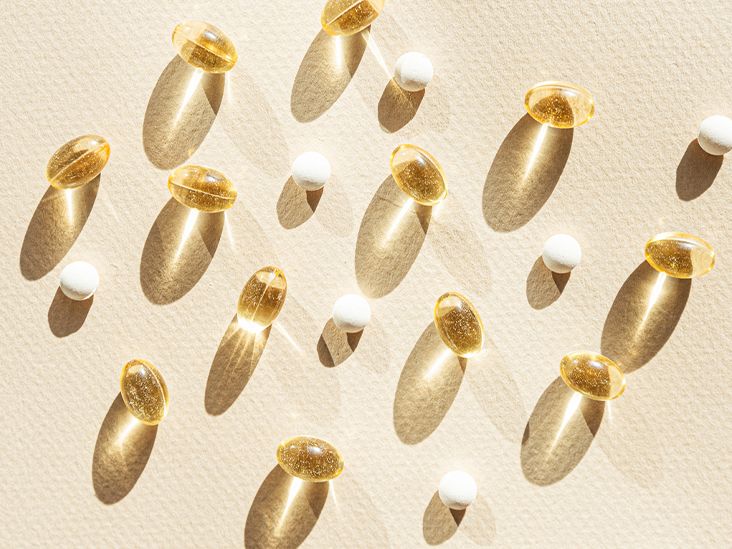Coffee by itself does not cause ulcerative colitis. However, it can stimulate the colon, which can be more uncomfortable for those living with the condition.
Ulcerative colitis (UC) is a type of inflammatory bowel disease (IBD) that affects the colon. It’s associated with sores and ulcers throughout the lining of the colon or large intestine.
Symptoms of a UC flare include bloody diarrhea, frequent stools, mucous-like stools, abdominal pain, general feelings of fatigue, and weight loss. During remission, these symptoms subside.
Research indicates that lifestyle, including your diet, may play a role in the development of UC and the onset of flares.
Coffee is known to affect the digestive tract. Yet, research on how this drink may influence the risk of developing UC and the management of its symptoms is still evolving.
Keep reading to learn more about the relationship between coffee and UC, whether coffee triggers UC flares and tips for managing potential gut-related side effects from drinking coffee.

A cup of coffee contains caffeine, beneficial antioxidant plant compounds known as polyphenols, and acids like chlorogenic acid.
According to
Still, a lot remains unknown about coffee’s effect on UC.
SummaryCoffee contains many active compounds, including caffeine and antioxidants, that may influence the drink’s effects on your body and UC.
Emerging
However, the exact reason behind coffee’s possible UC benefits is not fully understood.
Coffee may have anti-inflammatory properties, and
Coffee has also been found to
SummaryResearch suggests that drinking coffee isn’t a risk factor for UC. It may even protect you from developing the condition.
While some people attribute their UC symptoms to certain foods, only a few high quality
Instead of relying on studies, people with UC often identify which foods and drinks trigger their intestinal problems through trial and error — either on their own or with the help of a healthcare professional like a registered dietitian.
Even though there is a lack of research on caffeine and UC symptoms, the Crohn’s & Colitis Foundation lists coffee and other caffeinated drinks like soda as potential UC flare triggers.
Coffee can cause contractions within your digestive tract and speed up the elimination of its contents. In fact,
This effect was once attributed to coffee’s natural caffeine content. However, both decaffeinated and caffeinated coffee have been shown to stimulate bowel movements, so the effect is likely due to other chemical compounds like polyphenols or acids.
Because diarrhea is a common symptom of UC, anything that increases bowel movements may be undesirable. So, whether or not caffeine is at fault, coffee may be best avoided if you have UC and find that it worsens your symptoms.
SummaryThere is little data on coffee’s role on UC. While it may trigger symptoms in some people, others may tolerate it. Thus, the best way to identify if coffee affects you is to work with a healthcare professional.
While many people with IBD drink coffee, some do avoid it and attribute some of their intestinal symptoms to the drink.
In a
In other words, it appears that some, but not all, people living with UC avoid coffee as they believe it may affect their symptoms. Still, many people with the condition drink coffee with no perceived negative effects.
Although not ideal, the main approach to IBD symptom management is generally trial and error. This is also the case when learning what you can eat and drink.
The Crohn’s & Colitis Foundation recommends using a food diary to figure out which foods may be your triggers.
Depending on what your triggers are, consider these tips to see if they improve your tolerance to coffee.
Try a smaller serving size
Maybe you’re unable to tolerate larger servings of coffee, but sticking to smaller portions can be possible.
If you keep a food diary, also record how much of the food or beverage you consume. You might find your sweet spot at one cup of coffee per day versus three.
Keep in mind that 1 cup of coffee is defined as 8 ounces (236.6 mL) and that the smallest size offered at many coffee shops can be more than this.
Limit excess added sugars and sugar alcohols
Sugary foods are also on the list of potential trigger foods from the Crohn’s & Colitis Foundation.
Meanwhile, sugar alcohols like sorbitol and mannitol may be added to sugar-free coffee creamers. Sugar alcohols are also listed as potential UC triggers and
Try opting for unsweetened coffee to see if this triggers any UC symptoms. If you like and tolerate milk, milk alternatives, or cream in your drink, choose unsweetened versions of these add-ons.
Choose a dairy-free alternative
There are many plant-based milk and creamer options available — including soy, almond, oat, and coconut — that you can add to your coffee instead.
Avoid sources of carrageenan
Carrageenan is a food additive derived from seaweed. It’s used to thicken and preserve many foods, including some coffee creamers.
In a small
No participants receiving the placebo experienced a relapse, whereas three receiving the carrageenan supplement did.
It’s important to note that this is just a small, preliminary study, and it only showed marginal differences in UC outcomes. Ultimately, more research is needed to learn more — especially since carrageenan is not commonly consumed in supplement form.
SummaryKeeping a diary of the types and quantities of foods and drinks you consume can help identify potential triggers of your symptoms.
Staying hydrated with water is always important, but especially so if you’re experiencing a UC flare and losing a lot of liquid through frequent, runny stools.
In addition, consider adding electrolyte tablets to water or drinking electrolyte drinks during a severe flare. It’s important to replenish lost electrolytes to stay hydrated and keep your body’s nervous system and muscles working optimally.
Tea, including green tea, may also be a good drink option for those with UC. Tea is rich in antioxidants that may have anti-inflammatory properties and could help
However, keep in mind that green, black, and oolong tea all have caffeine. Some herbal varieties can also have a laxative effect on some people. If you react negatively to drinking it, it’s likely best to avoid it.
SummaryTry to stay hydrated with water or tea, if you can tolerate it. This is especially important during a flare-up to counteract water losses from diarrhea or runny stools.
A lot is still unknown about the role of diet in UC.
This can be frustrating since it means that there’s no clear-cut answer for which foods may cause a UC flare in those with UC.
Currently, coffee is flagged by professionals as a drink you may need to avoid during a flare. Further, it’s speculated that it may trigger unwanted gut symptoms in some people. Yet, to date, little research exists to support or refute this.
Managing UC requires an individualized approach. Lean on your gastroenterologist or seek out a registered dietitian specializing in digestive conditions for additional support and guidance.
If you do find that coffee triggers or worsens your UC symptoms, there are many coffee alternatives to enjoy instead.









